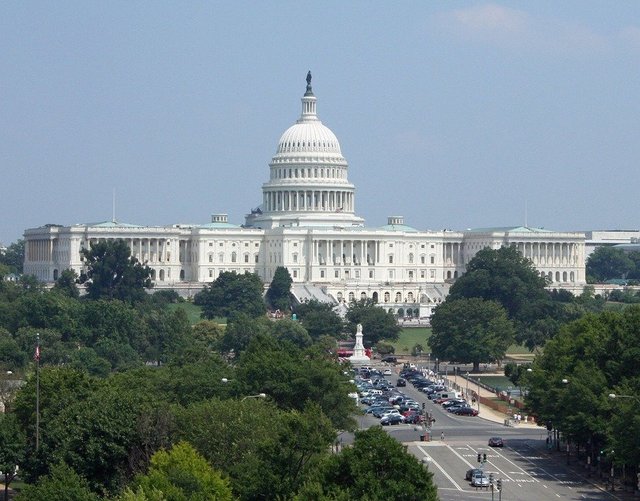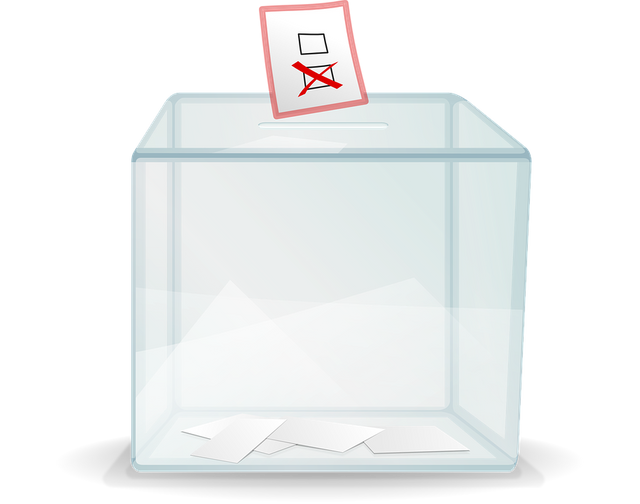Is the National Popular Vote Interstate Compact an Improvement or Subversion of the Electoral College?
The National Popular Vote Interstate Compact (NPVIC) is apparently a non-(not un-)constitutional-amendment way to get rid of the stacked deck that is the Electoral College. The Electoral College (EC) was, in essence, created to make sure that each state had its own power in the election of the President and Veep. It is not a fair system because it is flawed at the root, and there are other electoral systems that are far better in terms of trying to make sure the (most popular) candidate is chosen.

Note that I did not say BEST candidate!

What's the Electoral College?
In essence, the EC preserves the power of each individual state by ensuring that each state gets a number of electors (EC members) +2 based on its population. Well, no, that's not exactly true either - it's the number of Representatives each state has, plus the 2 Senators it gets - excepting DC, which only gets 3 votes.
Now, I didn't say each person is fairly represented because it doesn't do that.
It was used to encourage territories to join the US. It's antiquated. It essentially separates Americans by state, and then usurps that power from the populace so that electors in each state can then use or ignore the popular vote to justify choosing who they want. Typically, electors vote according to the popular vote BUT THEY DON'T HAVE TO. WHAT? Yes, an elector can vote for whichever candidate they want - even the least popular one. Each electors votes as they will, theoretically in the best interest of the state they represent, which means they might vote for a tyrant if they or the state stand to benefit a lot. The votes of each member are tallied for the state and, excepting a small number of states, whichever candidate gets the most votes from the electors of a state gets ALL of that states votes. The other states (currently Maine and Nebraska) divide up the votes so that it is proportional to the electors' votes - making it a bit fairer. But, again, electors determine the election - not the populace. Until recent history, this was rarely a visible problem with the EC usually mirroring the popular vote. This is a mockery of representative voting - your votes don't actually matter unless the state you're in requires the electors of that state to follow the majority vote of the population.
What is the Electoral College?
It would be better if we employ the multi-round voting system certain other countries employ. There are variations on this, and I won't explain them, but it basically boils down to the ideal that the first round eliminates the minor candidates and the 2nd (and any ensuing) round forces the entire populace to only choose from the remaining candidates.
BUT...
The number of electors, which is supposed to be dictated by population, may not always be adjusted based on the current population. See CGP Grey's video Spreadsheet Footnote: Electoral College & Apportionment Edition for details on the discrepancies.
Who Chooses the Electors?
The electors are chosen by each political party that has a candidate in any given state. Thus, if the Green Party has a presidential candidate on the ballot in Minnesota but not Alaska, then the Green Party in Minnesota will draw up a list of electors for their party. Electors are often supporters of the candidate, and are most likely going to vote according to the political party they are a member of.
Then, when you vote, you are actually choosing the electors because whichever candidate gets the most votes gets their electors chosen to make the actual presidential selection. That means that if you are in a state for which your party has no candidate you cannot help your party's candidate win.
Manipulation that Affects the Electoral College
Then, just to make it more complicated, there is gerrymandering, which is the redefining of a voting district's borders in order to give a particular party dominance when the current borders would give another party dominance. It's illegal but it happens. This doesn't happen within the electoral college but, combined with ballot stuffing and other illegal techniques to sway the popular vote, it clearly influences the EC.
So What's the NPVIC?
The compact makes it so that, once the popular vote is completed the chosen electors of each state MUST vote according to the popular vote...You know what, I'll have you watch a video that will explain it. I don't know why, but CGP Grey, who usually produces very useful videos on YouTube, made one about the NPVIC that absolutely didn't convince me that the compact is sneaky or subversive. If he's hoping to convince people of the validity of his title, he did a terrible job.
He did several others about the electoral college, voting and gerrymandering, among other topics of interest, which you can see the list of via this handy link.
Pros and Cons of the NPVIC
No, but we're really a NATION divided into states containing people and it is supposed to be the people, no matter how much they resemble idiotic sheeple, who vote a president in - not an elite number of electors that can completely ignore the will of the sheeple...people...in support of cronyism.
Would it be better if each state's electors had to vote based on the state's results, with gerrymandering impossible? Maybe, but we are ALL Americans in full (except the poor people of DC, who are relatively powerless, and the people of the US territories, who are completely unrepresented), so the antiquated idea of states having more power in the electoral process than the actual individuals is...archaic and should certainly be gotten rid of. Shouldn't it be the will of the people, not the electors? I think so, although I think most voters are too underinformed, biased, and manipulated to know which president is actually the one that is best for all Americans and, ideally, the world. I include myself in the category of voters who don't know enough. Then again, given the lies and false promises that most candidates make, and the limitations on their power plus the opposition of other parties, it really is a gamble.
With electors powerless to vote whichever way they like, the NPVIC takes the power of the vote out of the hands of the few and into the hands of the many.
Representative democracy [RD] (what we have now for both the presidential elections and how Congress functions) and direct democracy [DD] (where the voice of the people of the country are actually routinely heard for the purpose of making decisions) are both flawed. RD assumes that individuals are sheeple and are incapable of making the right choice. DD assumes that sheeple can actually vote intelligently. Both ignore the fact that the choices are an illusion - people elected to office generally do not have the interests of the masses at heart, and most of their campaign promises are either lies or things they don't have the ability to make happen. The "POTUS" is not all-powerful, after all. To make RD work, you have to get rid of corruption in all its forms so that a corrupt president can't be ushered into office so easily. To make DD work, you have to make sure that all citizens are well and truly educated about everything. Our educational system is not designed to create a population of highly educated, unbiased and analytical people that can vote correctly, and the media and private interests work hard to manipulate us into choosing who they support (or are supported by). Thus, DD cannot be a reality and RD cannot be perfected as long as our dumbed-down educational system continues to exist and the media and private interests bias our thoughts and decisions through lies, psychological manipulation and propaganda.
Either will also require the abolition of the tricky legalese that clouds the meaning of laws and other legal tools to the point that most people don't really understand them; get rid of riders; make each bill reasonable in size and easy to understand; get rid of last minute changes that force Congress to vote on things they haven't had time to read and research; have bills deal with individual issues as much as is possible, and other things - in essence, create a fair form of government, which most politicians, oligarchs, plutocrats, and many lobbyists definitely don't want because their power will be weakened. It will also require that no person or entity may, through advertising, polling/surveying or other means work to subvert truth and honesty in governance. In addition, meritocracy will need to be instituted and jealously protected to ensure we get the BEST leaders the country has to offer - not the motley crew we have now.
It doesn't matter which political "-ism" you choose to follow - none of them work correctly because they don't fully consider and correctly consider and incorporate humans and human nature.
The US is not a country controlled by a government "of, for and by the people". It is a plutocratic oligarchy that is sometimes fascist. It usually puts the needs of the nation and its people over the needs of all other nations and peoples, and puts the needs of the wealthy, powerful lobbies and companies over those of all else when there is a conflict of interests. Yes, the US is of, for and by a minority, generally the wealthy. Now, don't get me wrong - not all wealthy people are bad! There are all sorts of wealthy people, just like the rest of us.
Professional politicians are often professional lackeys who get rich at the expense of regular people. The Clintons are a perfect example, as are the Bushes and certain other families that have garnered huge wealth through political connections, and even illegal connections. Look at the Kennedies, Chases, Morgans, Rockefellers, Carnegies, Vanderbilts and many other families to see how many backs are the foundation, and how much blood their empires are soaked in.
To answer my title, I don't think it's subversion. It's an improvement, albeit a flawed one.
A Note on the "Lesser of Two Evils" Theory of Voting

This is the most common strategy that is employed to influence votes that I have seen. It goes like this:
"Yes, candidate A is bad, but candidate B is worse. Candidate C is probably great, but that person will never get enough votes to win. There may even be other great candidates, but they have the same problem! Therefore, if you don't want B to win, you MUST vote for A because any other candidate is a wasted vote!"
A lot of people buy into this logic. It sounds very reasonable. But, ultimately, it is manipulation and it costs other candidates a lot of votes because it preys on fear instead of building up hope, and steals not from the "two evils" but from all the other candidates. Let's say that 40% of eligible voters actually want candidate C to win, while 30% want A and 20% B, with the remainder either voting for a minor candidate or not voting at all. That means that C would actually win the election but, because C is perceived as a minor candidate who can't possibly win, A or B becomes the "best evil". There is, however no such thing as a best evil! By choosing one of the two candidates you don't want, you rob your favored candidate of success, just like millions of other voters! This is not the kind of compromise that really benefits us. Vote whom you believe is best - not the lesser evil!
Congratulations! Your post has been selected as a daily Steemit truffle! It is listed on rank 10 of all contributions awarded today. You can find the TOP DAILY TRUFFLE PICKS HERE.
I upvoted your contribution because to my mind your post is at least 2 SBD worth and should receive 130 votes. It's now up to the lovely Steemit community to make this come true.
I am
TrufflePig, an Artificial Intelligence Bot that helps minnows and content curators using Machine Learning. If you are curious how I select content, you can find an explanation here!Have a nice day and sincerely yours,

TrufflePigTo listen to the audio version of this article click on the play image.

Brought to you by @tts. If you find it useful please consider upvoting this reply.